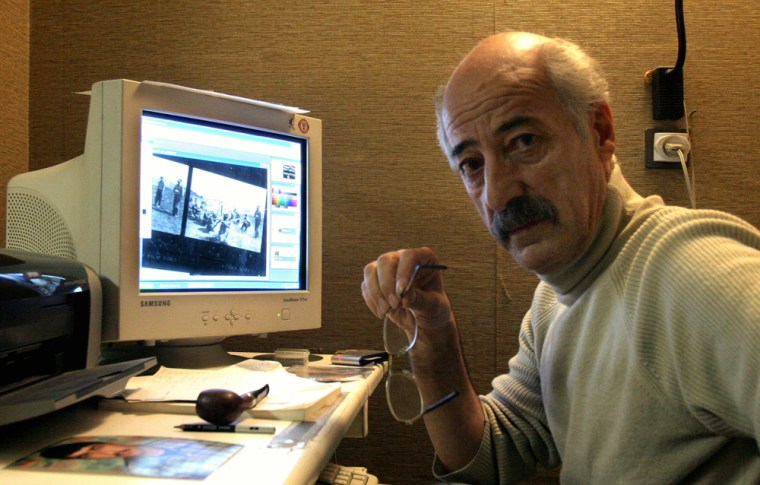After more than 25 years of anonymity, the Iranian photographer whose iconic, chilling picture of an execution won the Pulitzer Prize will formally be recognized as the winner of the prestigious journalism award.
Jahangir Razmi, whose identity was initially kept secret for his safety but revealed last weekend by The Wall Street Journal, will be given $10,000 and invited to New York for an award ceremony, the Pulitzer Prize Board announced Thursday.
"We understand that Mr. Razmi, who is the best judge of his circumstances, is eager to receive the award," said Sig Gissler, administrator of the Pulitzers.
The photo depicted a line of 11 blindfolded men executed by a firing squad in 1979, after Islamic radicals overthrew the shah of Iran. It was published by the Iranian newspaper Ettela'at, but Razmi's editor chose not to credit the photo out of concern for the photographer's safety.
The picture was later distributed by United Press International. It won the 1980 Pulitzer Prize for Spot News Photography — the only time in Pulitzer history that the board gave an anonymous award. His photo has long been used by critics of Iran's Islamic government as a symbol of the regime's brutality.
With Razmi's cooperation, the Journal on Dec. 2 published a lengthy article revealing his identity. It also published other pictures of the execution that he had taken.
"We found the story to be impressive, the evidence in it seemed clear and convincing, and then, as a matter of due diligence, we double-checked certain sources and examined other evidence in the case," Gissler said.
The board will adjust its records and will invite Razmi to get his award on May 21, the day the 2007 Pulitzer winners will be honored at Columbia University.
A message seeking comment from Razmi through an intermediary in Iran was not immediately returned Thursday.
Razmi, 58, who lives in Iran, told the Journal that he had long been disappointed at not being credited for the picture, but remained quiet for years out of fear of becoming a target.
More recently, partly because so much time had passed and partly because he was annoyed that others had tried to take credit for the picture, he decided to tell his story.
"There's no more reason to hide," he told the Journal.
